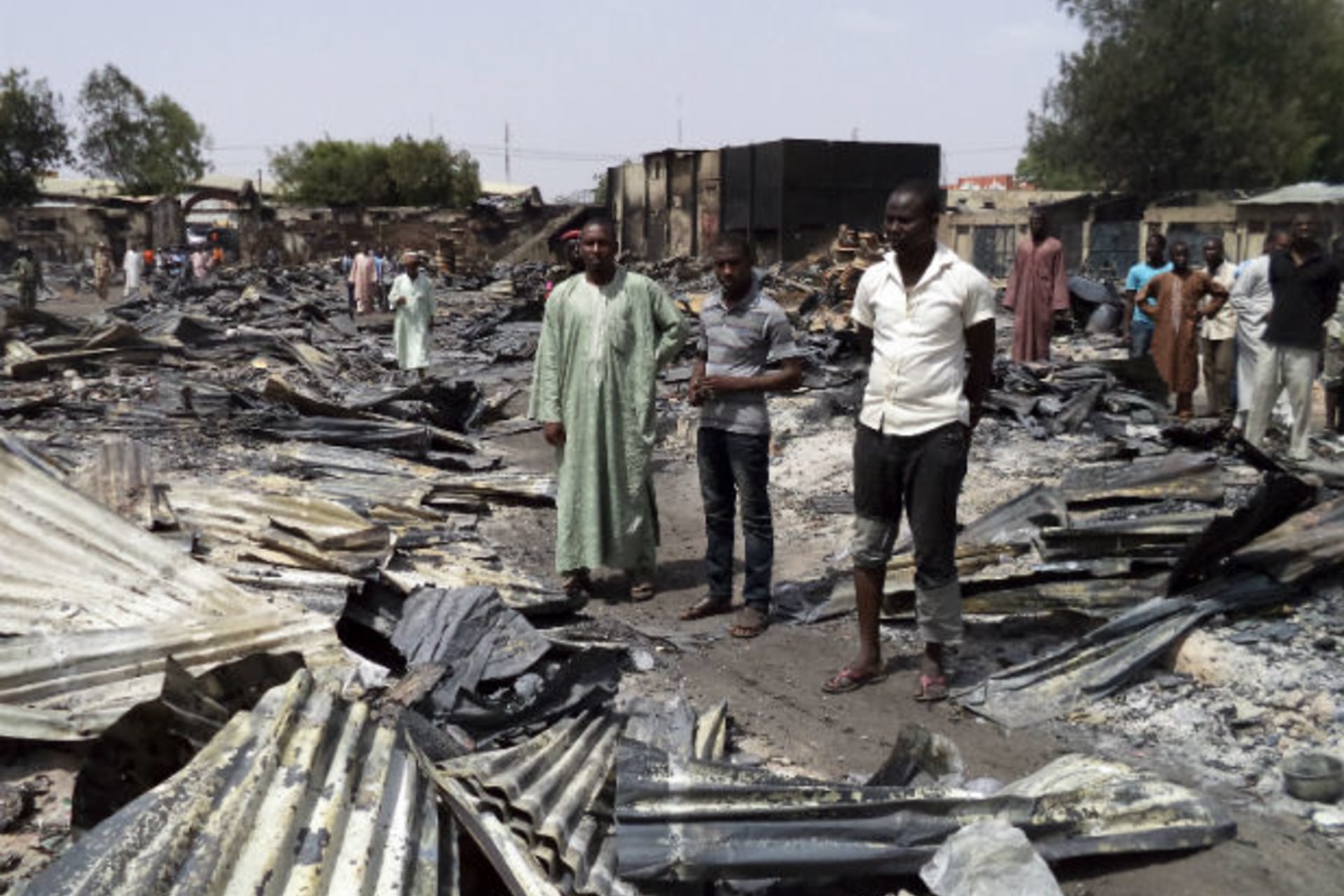Nigeria’s Civilian Joint Task Force

By experts and staff
- Published
By
- Guest Blogger for John Campbell
This is a guest post by Jacob Zenn, a research analyst at The Jamestown Foundation, and Atta Barkindo, a Ph.D. candidate, SOAS, University of London.
In May 2013, Nigerian President Goodluck Jonathan declared a State of Emergency (SoE) in northeastern Nigeria. The military purpose of the SoE was to eliminate Boko Haram safe havens and disrupt its operations. However, there may also have also been political motivations in declaring the SoE ahead of the 2015 elections. Since May, a new “Civilian Joint Task Force“ (JTF) has emerged in Boko Haram’s main base in Borno, which has arrested Boko Haram members, including its commanders.
The Civilian JTF may become an effective alternative to the government’s JTF, which has been accused of rights violations. Unlike the Civilian JTF, the government’s JTF is comprised of troops from all over Nigeria, who may not speak the local languages in northeastern Nigeria (Hausa, Kanuri, and Shuwa Arabic), or understand the local culture, religion, or geography.
In contrast, the Civilian JTF is believed to be comprised of as many as five hundred young Muslims from Borno. Some joined to avenge the deaths of their family members at the hands of Boko Haram. According to one, “we are into this to salvage our people from the Boko Haram who had killed our people, security operatives, and destroyed our economy.” Boko Haram, in turn, has declared war on the Civilian JTF, and Boko Haram members have disguised themselves as women by wearing burkas or pretended to be coroners to avoid detection.
However, the Civilian JTF also resembles “vigilante groups,” or urban political thugs that emerged in the north-east, especially with Nigeria’s return to multi-party democracy in 1999. Such groups included Ecomog in Borno and Yobe states, Sara-Suka in Gombe state, YanKallare in Bauchi state, Banu-Isra’il in Taraba state, and Yan-Shinko in Adamawa state. Most of these groups of unemployed youths are sponsored by desperate politicians who lure them with promises of employment and other government patronage. In some instances, they have even attacked their own sponsors in public functions like weddings and political rallies when the sponsors fail to meet expectations.
Reliable information about the Civilian JTF is hard to obtain. Borno is perhaps the most remote state in Nigeria and the JTF has imposed a mobile phone ban in the region. However, Atta Barkindo, a PhD student at SOAS in London, recently traveled in northeastern Nigeria and gained primary source observations about the Civilian JTF and the SoE. According to Barkindo, on-the-ground evidence suggests that “government policy towards engaging with Boko Haram is at best confusing.” The government formed a Presidential Amnesty Committee, proscribed Boko Haram, and declared a State of Emergency. He says, “It remains to be seen how the government intends to pursue three, often conflicting, agendas at the same time in the midst of an ongoing conflict.”
The Civilian JTF, he says, is likely a welcome development for the security forces. The youths, who form the bulk of the group, “know the inner recesses of the region” and are capable of helping the security forces, often less familiar with the geography and people, identify members of Boko Haram. However, according to Barkindo, it is safe to suggest that this Civilian JTF could be an extension of historical political grievance in the context of sponsored political thugs and urban violence, rather than some “lofty vision” of supporting the Military JTF. In addition, he notes that militia movements in northeastern Nigeria are fluid and motivations uncertain; “loyalty is not defined by any national ideology but material gains.”
It remains to be seen whether the Civilian JTF is the game-changer that the Nigerian government needs to defeat Boko Haram. It could be a genuine civilian response to a conflict that is beginning to take its toll on the ordinary people. However, it may also be a risk. Given the history of militia movements in Nigeria, arming the Civilian JTF, as some have suggested, would be inadvisable. We will follow closely as events unfold.